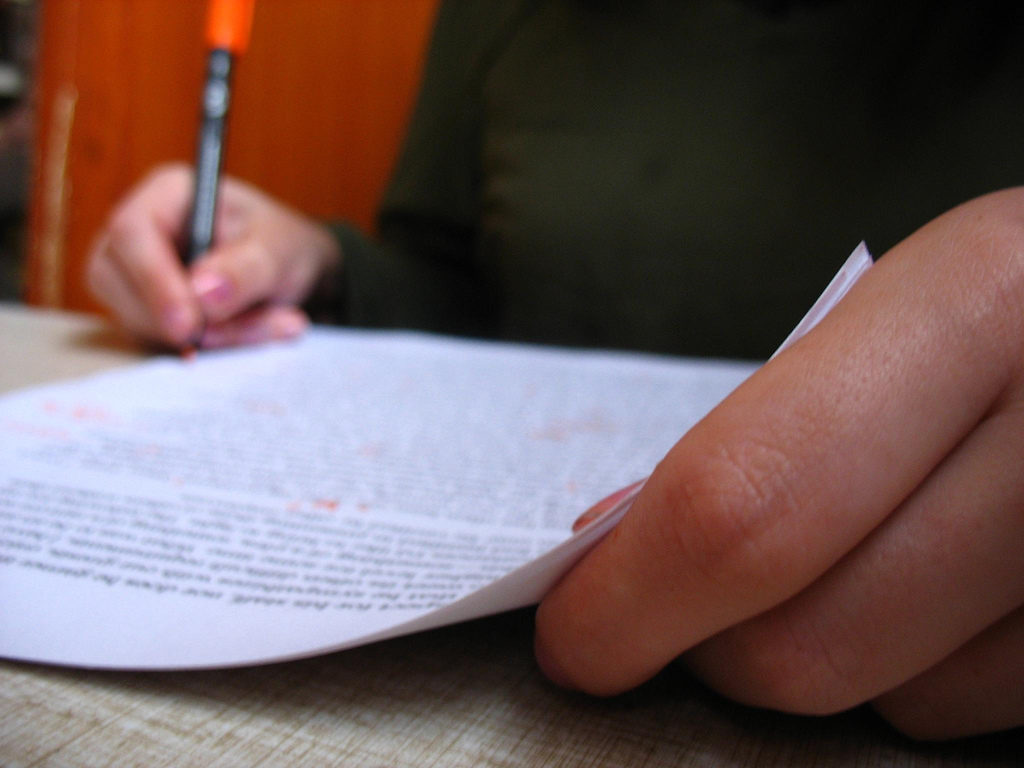You don’t have to be an experienced paper writer to produce A-grade essay. Anyone can learn the academic basics to write good essays. Academic writing and produce a work that is clear, pervasive, and well-narrated. Grab your assignment and get ready to be impressed and impress your teacher. A good skill set and you should be able to write a term paper on any topic.

Make a Strong Argument
Almost every writing assignment requires a student to build an argument. Your instructors call this “a thesis”. It is your position on a subject. In your paper, you should persuade a reader of your point of view.
Have you ever seen how a lawyer argues a case in a court of law in a movie or real life? You should do the same in your essay but in a written form. Express your attitude to the topic and defend it strongly with evidence.
To make a powerful thesis, choose the aspect of the given issue that matters to you or allows you to view it in a new perspective. For example, if you need to analyze women’s domestic labor during the first half of the 19th century, you might focus on the products they did with their own hands.
Conduct an Effective Research on Every Side of the Argument
Academic essays have one thing in common: they revolve around an argument. That’s why a research lays the foundation for an excellent piece of writing. Explore various credible sources. Take notes of any evidence that can back up your argument in order to write good essays.
After gathering material, re-examining it, and identifying patterns, you may alter your argument a bit. For example, you might find out that because of increasing industrialization women started to produce fewer textiles themselves, but they kept making butter and soap.
Construct a Comprehensive Outline
Your outline gives you a clear route to follow when writing your paper. Here is a common structure of an essay:
Introduction Paragraph (10-15% of the essay length):
- A hook;
- A short preview of three subtopics you will discuss in the body;
- A thesis statement.
Body Paragraphs (80% of the essay length):
- Topic sentence (represents one of the subtopics);
- Evidence (facts, quotes, statistics or personal examples that supports the topic sentence);
- Explanation (describes how the evidence supports the topic sentence);
- Concluding sentence (setting up for the next paragraph).
Concluding Paragraph (5-10% of the essay length):
- Restatement of the thesis statement;
- Paraphrasing of three subtopics;
- Concluding statement.
After gathering all the information and creating the outline, the essay will actually write itself.
Pay Editing and Proofreading an Attention They Deserve
Accuracy is extremely important if you want to write good essays to be graded appropriately. Developing a solid understanding of grammar, syntax, and punctuation takes time. Still, there are some hacks that can help you improve your written piece right now.
Your content should be understood on the first reading. That doesn’t mean that you should use only short sentences. Employ simple, compound, and complex types of sentences. But avoid too long and rambling structures. Sophisticated syntax techniques make you sound intelligent when you don’t overdo with that. Hemingway app can help an inexperienced writer to improve the readability of the content.
Use the active voice whenever possible. For example, say “this survey found” instead of “it was found by this survey”. This trick makes writing more convincing. And that’s exactly what you need as you are trying to persuade the reader in your point of view.Grammar accuracy is no less important. Improper article and pronoun usage, subject-verb disagreement, and misspelled words are common student’s errors. Good punctuation is also vital for successful academic writing. Grammarly’s writing app finds and corrects hundreds of errors. Learners use it to proofread their essays, research papers, theses, dissertations, and college entrance applications.
Polish Your Vocabulary
As a writer, you should not only think about what you say, but how you say it. It’s not enough to have properly organized ideas presented in complete and coherent sentences and paragraphs. A good vocabulary is key to writing good essays and apparently vocabulary gives away our age.
Make sure your language is effective. Utilize the next tips:
- use concrete and specific words, not vague and abstract;
- be clear and avoid verbose explanations;
- be careful with obscure language, if you want to use a fancy word, check its definition first;
- write clearly and concisely in order to enable your audience to understand you;
- avoid word repetition with a help of synonyms.
Academic paper writing requires you to stick to formal tone. Your voice should be confident to reassure the readers that they are in safe hands. To learn it, read the essays of your peers and academics. You will discover that a formal style doesn’t sound boring.
The above tips will help you write good essays much faster and more efficiently than you usually do. And remember, the more assignments you complete, the better essay writers you become.








